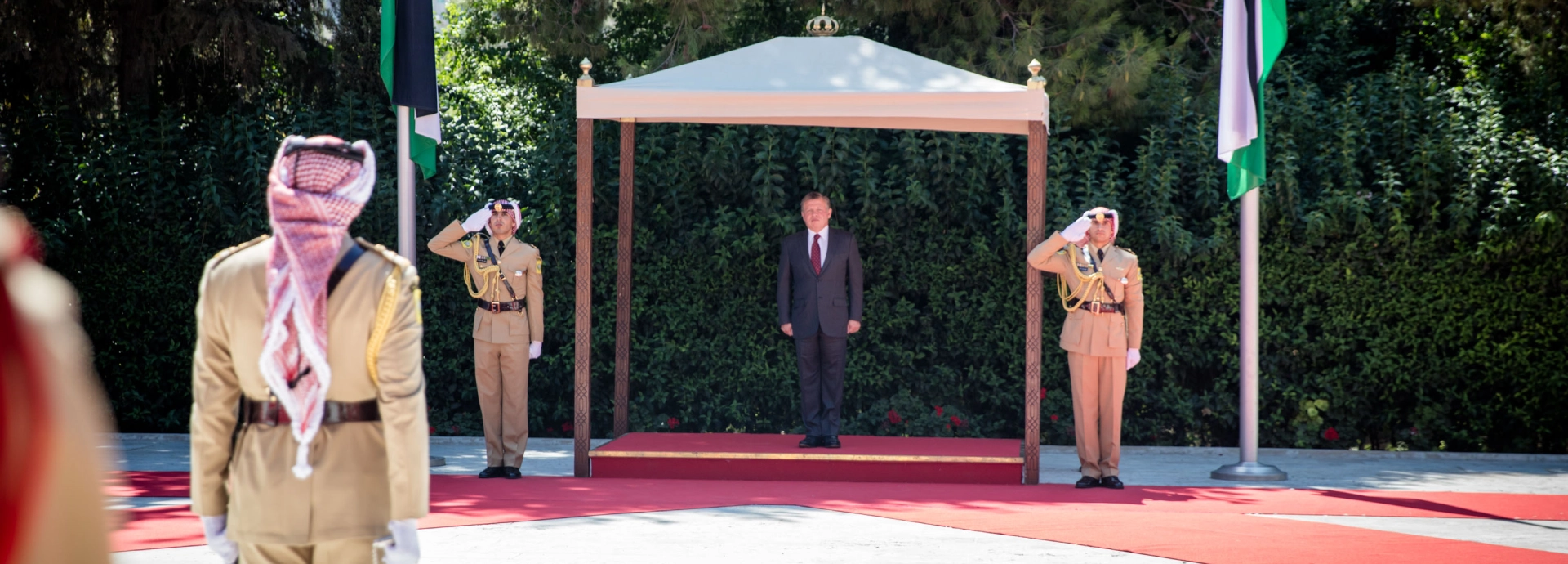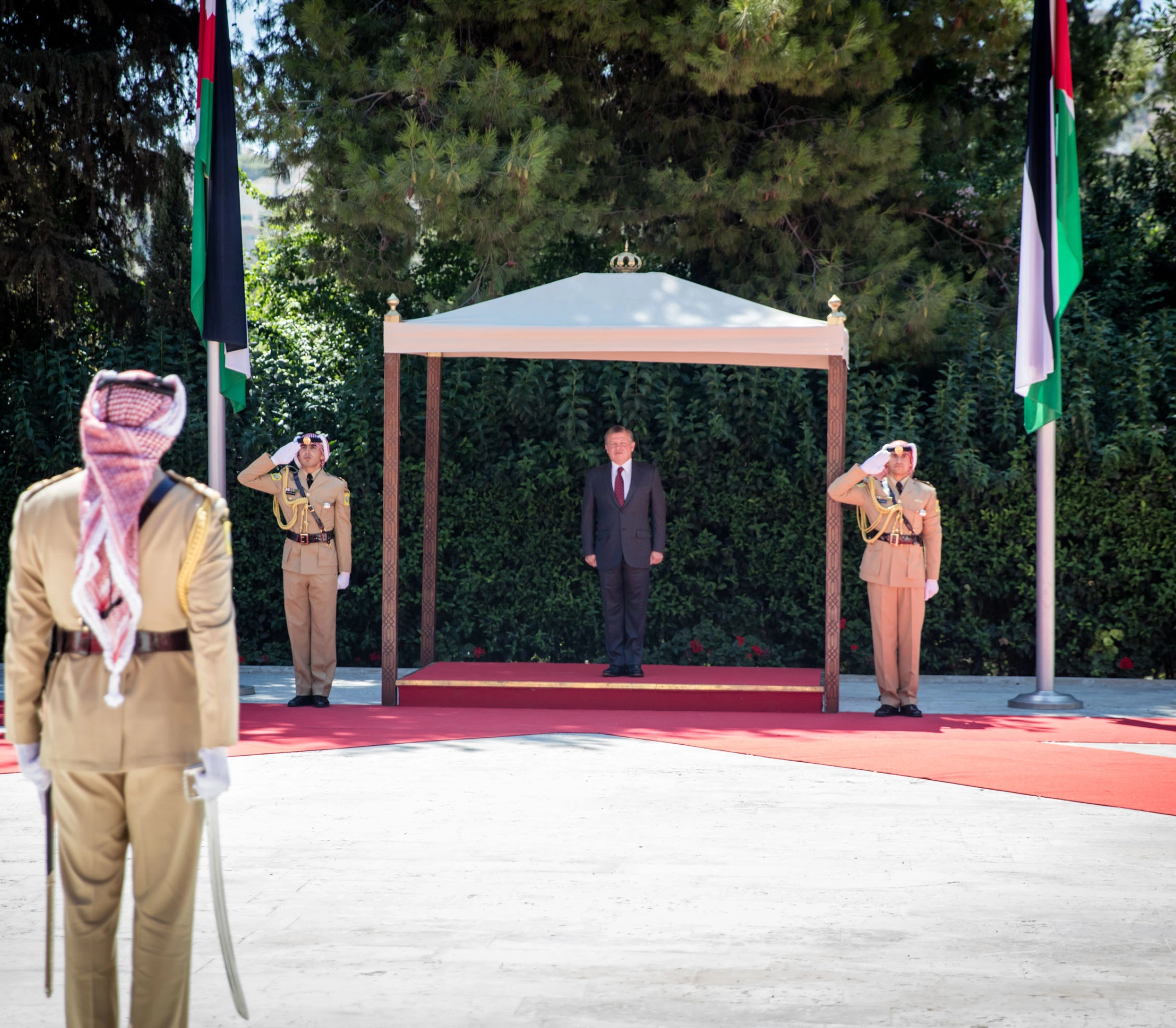

Talks in Ankara, Paris take ties step further
11 December 2007
His Majesty King Abdullah on Tuesday reaffirmed his commitment to strengthening Franco-Jordanian relations in various sectors and stated his satisfaction with the memorandum of understanding on the establishment of a Policy Consultation Group.
According to a Royal Court statement, the group will coordinate political, economic and military bilateral relations, as well as issues pertaining to energy generation.
In talks with French President Nicolas Sarkozy Tuesday evening, the King lauded the strength of relations between Jordan and France, as epitomised by France's support for the Paris Club's recent buyback of part of Jordan's debt.
King Abdullah also underscored the importance of rallying international efforts in the coming months to build on the outcome of the international peace meeting held last month in Annapolis. He said that all concerned parties must support Palestinians and Israelis to ensure that they uphold their commitments and advance the peace process.
The King stressed that the international peace meeting must be leveraged as a real starting point for serious negotiations within a benchmarked, timelined framework aiming to achieve a Palestinian-Israeli agreement before the end of next year.
King Abdullah added that negotiations must address all final status issues, leading to the establishment of an independent and viable Palestinian state.
His Majesty said France plays an important role in helping ensure the success of Palestinian-Israeli negotiations, reiterating that a two-state solution is the accepted formula for peacemaking in the Arab world and internationally.
The King also restated Jordan's commitment to helping achieve progress towards a just and comprehensive peace that includes the end of the occupation of Syrian and Lebanese lands, and which resolves the various aspects of the Arab-Israeli conflict in accordance with international legitimacy.
King Abdullah and the French president also discussed during their meeting means of supporting the Palestinian Authority. The King expressed his appreciation to President Sarkozy for France's hosting of the Palestinian donors summit, which aimed to rally political and financial support for the PA in order to help alleviate the difficult economic conditions facing the Palestinian people.
The two leaders also discussed Iraq and ways to strengthen security and stability there. King Abdullah reaffirmed Jordan's support for Iraqi national reconciliation efforts and the need to ensure the inclusion of each of the country's spectra in the process.
The recent developments in Lebanon were also on the meeting's agenda. King Abdullah stressed his support for maintaining the country's security and stability, hailing French efforts to preserve Lebanon's sovereignty and unity.
His Majesty arrived in Paris from Ankara, where Jordan and Turkey also agreed to form a policy consultation group to function as a forum for dialogue between the two countries on all issues of concern, especially bilateral and regional issues.
According to a joint statement issued following a meeting between King Abdullah and Turkish President Abdullah Gul, the committee, which will coordinate policies, comprises high-ranking officials.
In his meeting with Gul, King Abdullah condemned a recently announced Israeli plan to build 300 housing units in Jabal Abu Ghneim in East Jerusalem.
The two leaders said such a step is an obstacle for the peace process and for increasing confidence in the process, especially after the Annapolis meeting.
In remarks to the press, King Abdullah said the US should hold each party accountable for its commitments at the Annapolis meeting, adding that negotiations should be coupled with the implementation of commitments by each party on the ground, including the halt of Israeli settlement activities in East Jerusalem and the West Bank.
The Turkish president said the news about Israel's plans to create new housing units shocked the world because it was a stark and a clear violation of the Annapolis meeting, which the two leaders said should serve as a starting point for a process that leads to the creation of a Palestinian state in 2008 through intensive negotiations.
Gul voiced hope that Israel would go back on its decision because none of the parties is allowed to hamper the peace process.
King Abdullah described his talks with Gul as fruitful and a step towards a significant push for deepening bilateral ties.
According to the joint statement, the two sides agreed to enhance cooperation in various political, security, economic and tourism issues, in addition to energy issues such as gas and power linkage.
Jordan and Turkey also stressed the importance of their efforts to generate a comprehensive solution to the Arab-Israeli conflict in accordance with the Arab Peace Initiative.
In this regard, King Abdullah thanked Turkey for its role in helping to revive the Palestinian economy through the creation of industrial zones.
Talks between the two leaders also covered the situation in Iraq and Lebanon. They stressed the importance of preserving the stability, unity and sovereignty of both Arab countries and rejected any external interference in their internal affairs.
King Abdullah and Gul said it was also important to achieve progress on Syrian-Lebanese tracks. They also condemned all threats to regional security, especially terrorism, including recent terrorist acts by the Kurdistan Workers Party.
Also today, King Abdullah met with Turkish Prime Minister Recep Tayyip Erdogan and discussed bilateral ties in various political and economic fields.
The two sides agreed to enhance cooperation and coordination to establish peace and stability in the Middle East in accordance with the 2002 Arab Peace Initiative and international resolutions.
The two countries agreed to develop commercial and economic ties and to sign a free trade agreement as soon as possible, in addition to enhancing cooperation in the field of ground and marine transportation.
They also said a joint economic committee meeting could be held as early as next year.
Also today, King Abdullah visited the tomb of Mustafa Kemal Ataturk, the founder of modern Turkey, and laid a wreath and signed the book of senior visitors.